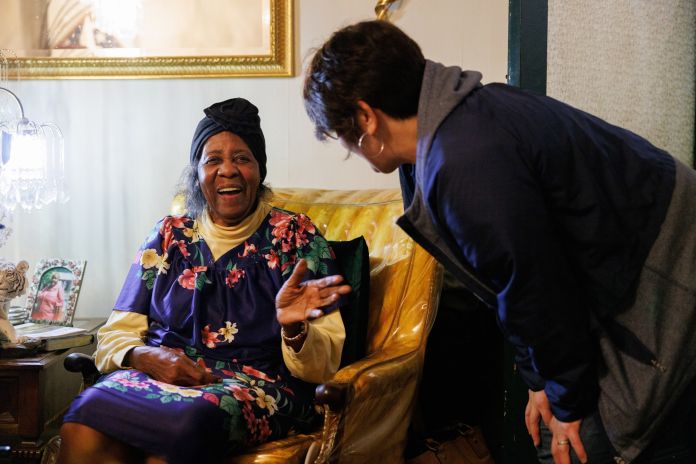Pilot Program launched with support from Caesars Foundation Demonstrates the efficacy of friendly calling and visiting in reducing disconnectedness among seniors
ARLINGTON, USA – Meals on Wheels America, the leadership organization supporting the more than 5,000 community-based providers across the US dedicated to addressing senior isolation and hunger, on Tuesday released new findings from a recent pilot study quantitatively measuring the impact of regular social interaction on feelings of disconnectedness in older adults and exploring operational considerations for reach and scale.
Meals on Wheels social connection programs link volunteers with seniors in their communities through two key activities: friendly calling and friendly visiting. Friendly calling involves regular phone calls made by a volunteer or staff member to provide conversation and companionship. Friendly visiting refers to in-person, one-on-one engagements between a senior and a volunteer, scheduled regularly over an extended period of time. Through this pilot study, conducted with ten local Meals on Wheels providers, Meals on Wheels America examined how these interactions affect feelings of disconnectedness in older adults.
The findings include:
- 53 percent of participants who received friendly calls and/or visits reported statistically significant reductions in social disconnectedness;
- Seniors who received regular calls and visits reported feeling significantly more content with their friendships and relationships and ability to find companionship;
- Participants showed improvements in emotional well-being, with many expressing increased happiness and a stronger sense of community.
When asked about the impact of the social connection program on their life, a study participant shared, “I’m speaking from my heart. I love this program. It makes me feel alive, like someone cares. And I know I’m not the only lonely senior.”
“This pilot validates existing findings that Meals on Wheels providers offer impactful social connection programming and uncovers meaningful lessons for scaling these valuable, time-intensive offerings,” said Laura Belazis, senior director of strategy and impact at Meals on Wheels America. “From here, we will work to reduce operational barriers to providing social connection programs and improve the depth and quality of social interactions as we scale these offerings to additional providers within the Meals on Wheels network.”
Social isolation and loneliness are growing public health concerns, declared a national epidemic in 2023 by the US Surgeon General. The negative consequences of social isolation include anxiety, depression, cardiovascular disease, cognitive decline, lower quality of life and increased use of health care services.
Source: Meals on Wheels America

